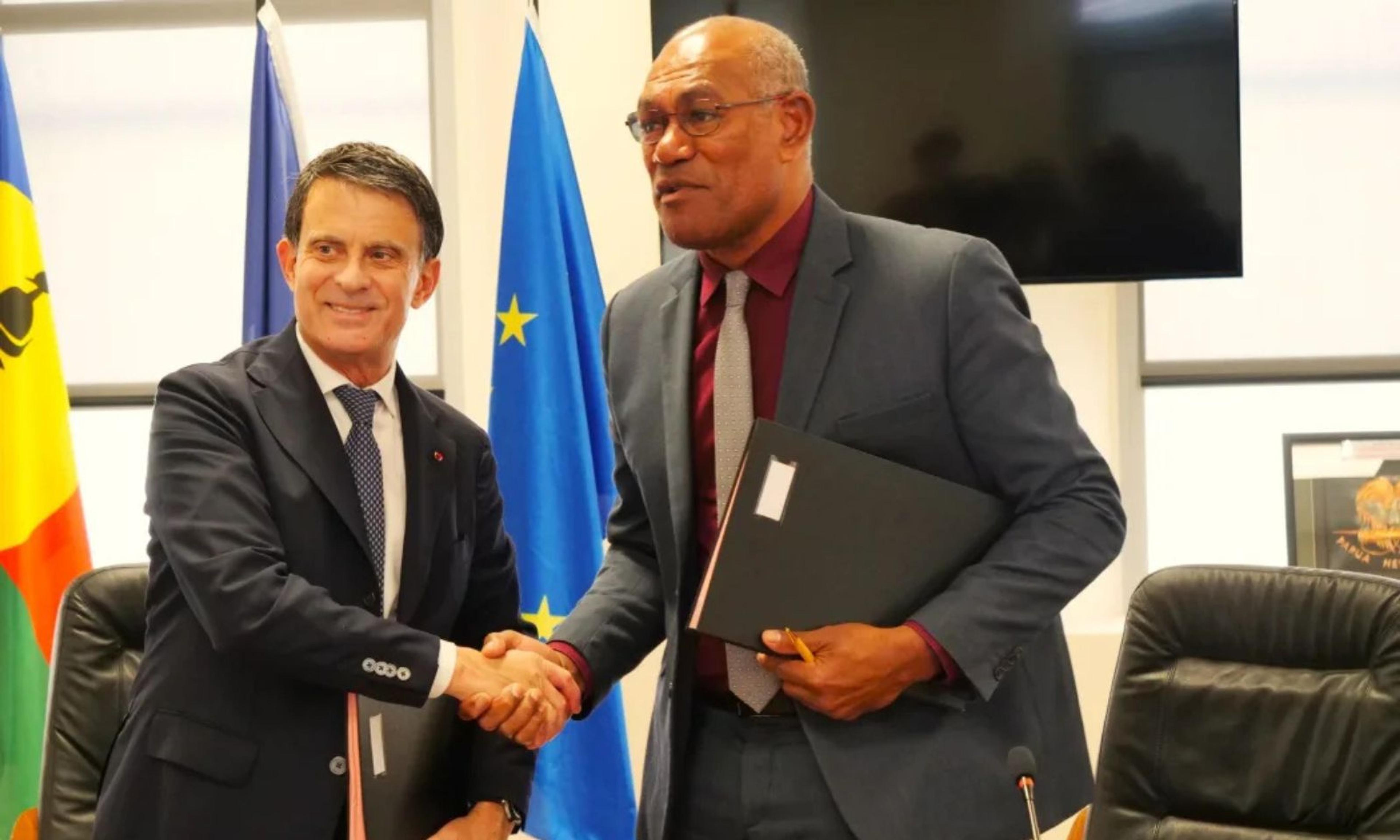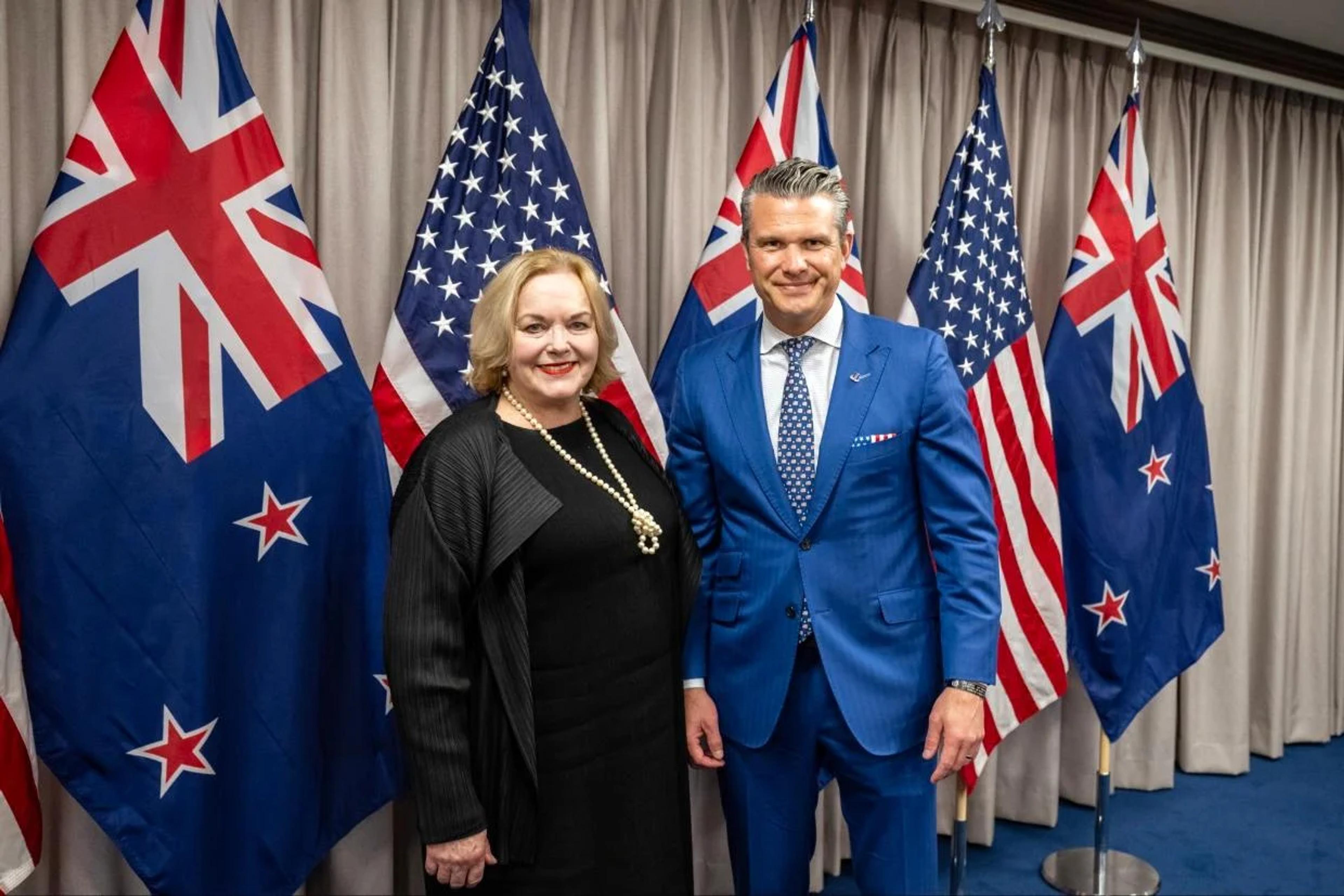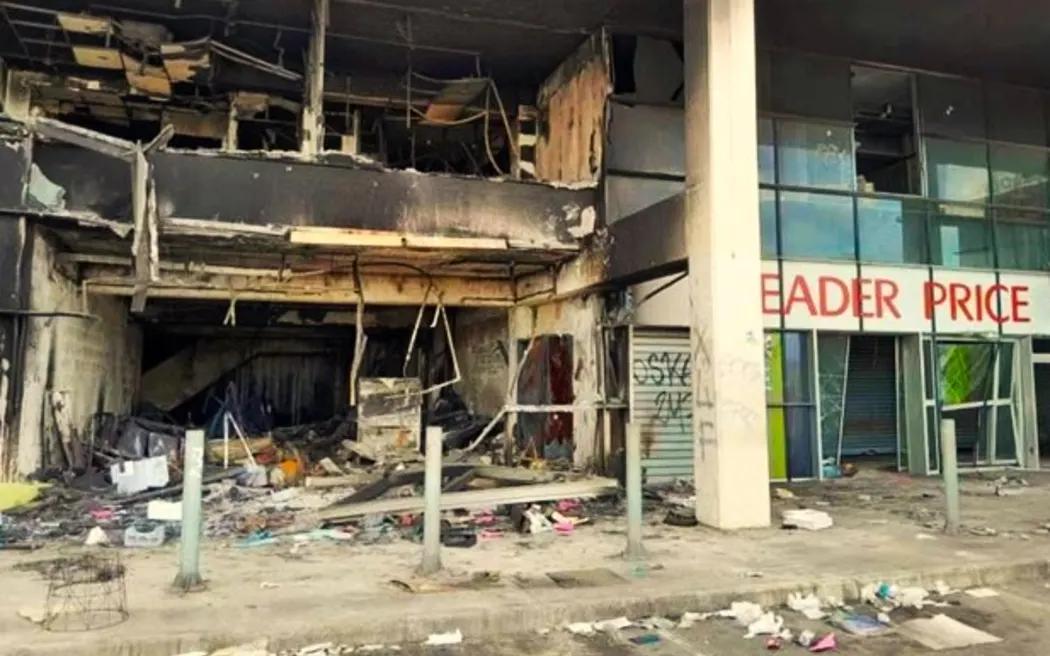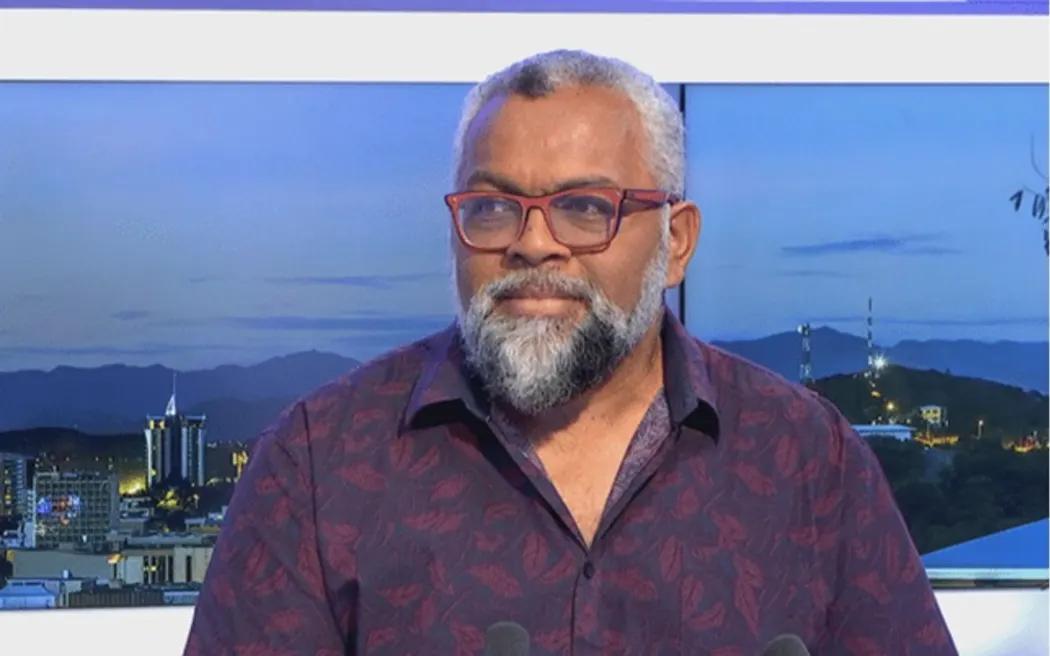

French Minister for Overseas Manuel Valls, left, and New Caledonia President Alcide Ponga signed a loan for €1 billion (NZ$1.95b) in March 2025.
Photo/Gouvernement de la Nouvelle-Calédonie
New Caledonia's quest for full independence persists amid new deal with France - expert
Journalist Nic Maclellan says France has reached an agreement with its Pacific territory for increased local control, sparking concerns among Indigenous Kanaks.


Tonga bets on China deal to modernise farming ahead of general election

Joseph Vuicakau flies Fiji flag high on The Voice Australia stage

NZ warns Pacific sovereignty at risk in deep sea resource race


Tonga bets on China deal to modernise farming ahead of general election

Joseph Vuicakau flies Fiji flag high on The Voice Australia stage

NZ warns Pacific sovereignty at risk in deep sea resource race
France has agreed to give New Caledonia a special status, but it has not granted independence to the Pacific island nation, which has been a French territory since the mid-1800s.
New Caledonia, which France annexed in 1853, has a diverse population with about 40 per cent being Indigenous Kanaks and around 25 per cent being Europeans.
Between 2018 and 2021, New Caledonia held three votes to decide on independence, but none were successful.
Recently, tensions rose when new voting rights were given to non-Indigenous residents, which made it harder for Kanaks to have a say in local governance.
French President Emmanuel Macron announced on the weekend that the goal of the new agreement is to give New Caledonia more local control. But he did not meet the demand for complete independence that many Kanaks are calling for.
Reactions to the new agreement are mixed. Some leaders are happy about the decision, while there remains a lot of disagreement between those wanting independence and those wishing to stay part of France.
Nic Maclellan, a regional correspondent for Islands Business magazine, says the agreement was reached after 10 days of negotiations in Paris, involving discussions between the French government and representatives from both sides of the independence debate.
The talks were sparked by civil unrest due to controversial voting rights changes announced earlier this year.
As part of the latest agreement, residents of New Caledonia will now need to live there for 10 years before they can vote.

Riot damage in Nouméa's Ducos industrial zone during the unrest in May 2024. Photo/LNC
But in an interview with Ala Vailala on Pacific Mornings, Maclellan says there are concerns among the Kanaks that this rule could leave them permanently in the minority, making it even harder for them to achieve independence.
"There are a lot of questions about the agreement, which it's important to stress is still not an actual, legally-binding agreement," he says.
"There has to be a series of measures, including legislative changes in Paris, a referendum of New Caledonians to adopt or reject the agreement next February, and a series of legal changes within New Caledonia that would bring in key provisions that have been highlighted by the headlines.
"When you look at the document, only the signatories pledged to bring back the text of the consensus agreement to try and promote it and sell it, basically, to their members, their parties, to their constituencies in the New Caledonian electorate.

Union Calédonienne members of the FLNKS Executive, one of the key parties during earlier talks with the French government. Photo/LNC
"The key point is that there's a long way to go before the provisions of this agreement would be implemented. And there's some rocky terrain ahead because the very tight timetable for change that's set out may be derailed by factors outside of New Caledonia."
Macron has hailed the agreement as ″historic", proposing to create a ″state of Caledonia″ as part of France and a new ''Caledonian nationality″ alongside French nationality, according to excerpts viewed by The Associated Press.
Emmanuel Tjibaou, a Kanak leader involved in the talks in the Elysee presidential palace in Paris, told reporters that the deal could help reduce violence and allow all Caledonians to unite rather than remain divided.
Supporters of keeping New Caledonia connected to France have welcomed the agreement. Politician Nicolas Metzdorf described it as a compromise reached through tough discussions.

Emmanuel Tjibaou. Photo/Screenshot/NC la 1ère
Maclellan says many community and business leaders are also relieved that a consensus was reached after lengthy negotiations. But he says there are risks that not everyone will be satisfied.
"Obviously, the independence movement wants a clear pathway towards a sovereign and independent nation. So-called loyalist parties want to remain within the French Republic.
"It's been very hard to bring together those competing interests. I think that's still a tension within the agreement that's been done. And all of the people negotiating in Boucherville, which is just outside of Paris, recognise that this is a compromise.
"It's not going to please anyone or everyone. On that basis, as the politicians fly home to New Caledonia, some of them will be receiving quite sharp questioning and indeed criticism from their supporters, simply because on both sides, key objectives have not been met. And that's going to cause some tension and indeed some debate in the coming months."
Watch Nic Maclellan's full interview below.
He says, for example, independence activists have long called for a pathway to a sovereign and independent nation. "This agreement clearly doesn't achieve that. Once again, sovereignty and independence have been deferred.
"There are some positive elements in it, but at this stage, that's a key question. Independence activists will also be critical that the southern province, which has long been a bastion of anti-independence forces, will receive extra fiscal and administrative powers and will also get extra seats in an expanded Congress of New Caledonia. That's the local parliament, currently 54 seats.
"It'll soon be 56 next year. There are also changes to the voting rights for the three provincial assemblies and the national congress. This was an issue of enormous debate last year."

Tourism officials in New Caledonia say that since last year's civil unrest, the economic and social recovery have been "slow but steady". Photo/New Caledonia Tourism
What's next? France's parliament will vote on the agreement before it goes to New Caledonia for a referendum in 2026.
There are complex constitutional issues to resolve, and while the initial agreement is seen as positive, Maclellan says detailed scrutiny is required in the coming weeks and months.